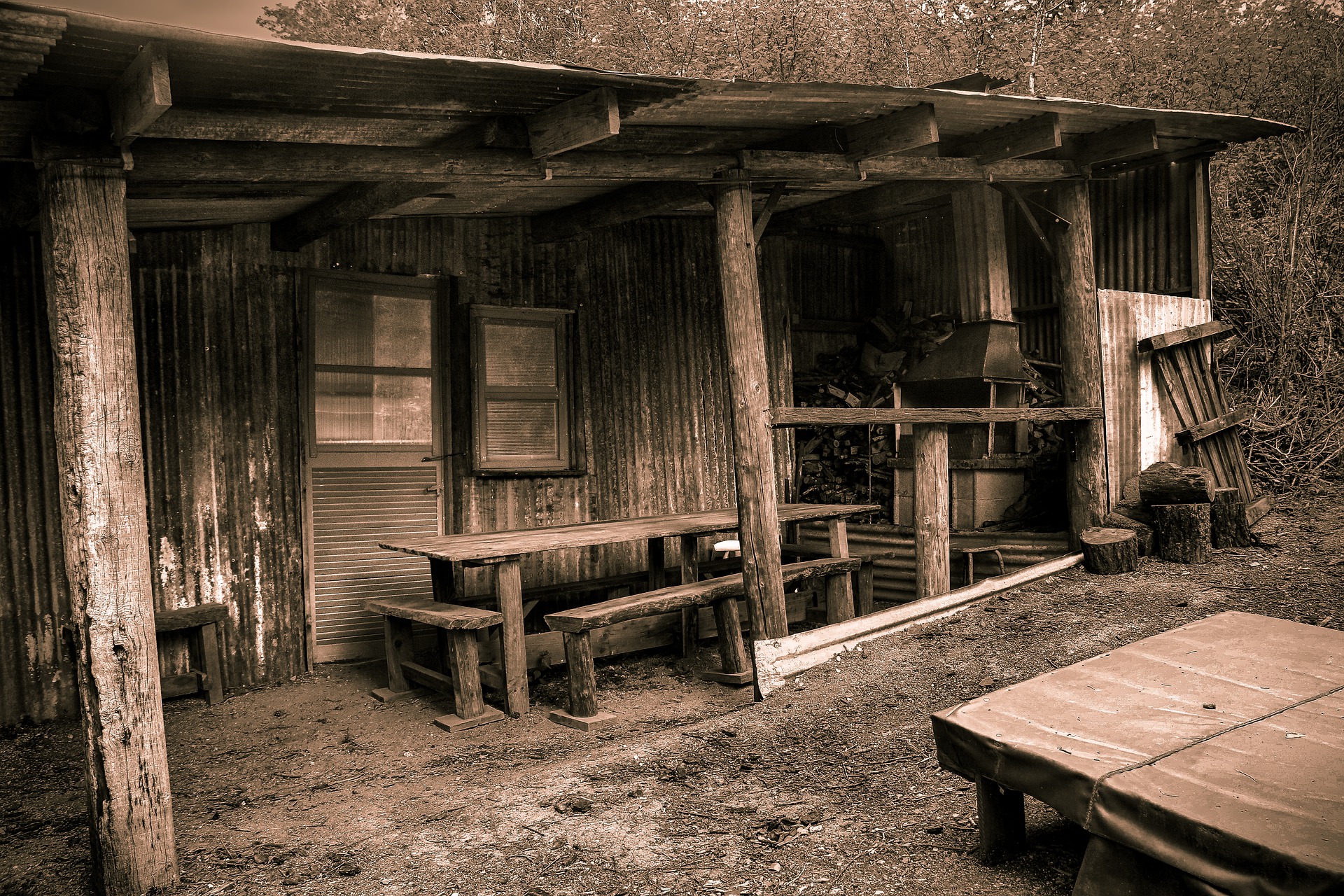He was born in the summer of 1838. The timber of the simple log cabin his parents called home helped welcome Philip into this world.
At 10 years old, he heard the piano for the first time. Philip was so captivated by the sound of it that he walked right into a stranger’s home to hear more. Sitting down, Philip listened while the woman played. When she stopped he cried for more, only to be shown the door out! No matter what else happened that day, his love of music was kindled.
In the Lumber Camps
At the tender age of 11, Philip left home to work in the lumber camps. The days were hard, but the evenings afforded him the opportunity to attend a “singing school” led by hymn writer, William Bradbury.
In 1850, Philip Bliss made his first public confession of faith in Jesus Christ. He was 12.
In 1858, while boarding with the family of O. F. Young, he met and fell in love with their daughter, Lucy. Philip and Lucy married the following year.
During the winter of 1859, Philip worked as a traveling music teacher. A folding organ accompanied him in his travels.
Gospel Singer & Composer
In the summer of 1860, he became a student at the Normal Academy of Music in Geneseo, New York. Philip worked hard and eventually became a gospel singer and composer.
By 1869, Philip had met Dwight Lyman Moody, who history would record as a famed evangelist. The two worked together, off and on, for the next 8 years.
In September, 1876, Philip and Lucy helped D.L. Moody with 11 meetings in one week. As the end of the year approached, Philip and Moody received requests to go to Europe. They planned a meeting in Chicago then intended to go to Europe.
With Christmas approaching, Philip went home to spend the holidays with his family. On December 29, 1876, Philip and his wife Lucy, traveled to rejoin Moody. Nearing Ashtabula, Ohio, no one realized until too late that the bridge ahead was collapsed. The train Philip and his wife were traveling on plunged to the icy riverbed below.
Greater Love Has No One Than This
The train was a mangled mess of wood and metal. Broken stoves ignited a fire that would sweep through and consume the train. Philip escaped by crawling out an open window. Who knows how long it took, searching the survivors, to discover his wife was still in the wreckage?
The Bible says, “Greater love has no one than this, than to lay down one’s life for his friends.” John 15:13. Did Philip consider this scripture when he crawled back into the burning wreckage to look for Lucy? During those minutes of great stress, it is unlikely that he thought of anything other than finding his wife. In a search that must have been filled with apprehension, desperation and fear, history cannot tell us if Philip found his beloved wife since none of their remains were found. Although history does not record the intimacy of their final moments, we can hope they shared them together.
A monument was erected for Philip and Lucy in Rome, Pennsylvania. Their memorial reads, “Lovely and pleasant in their lives, and in their death they were not divided.” 2 Samuel 1:23
By the time he died at age, 38, Philip Bliss wrote more than one hundred hymns. His trunk, salvaged from the wreckage, held several of his compositions. In his life, he earned more than $30,000 in royalties alone. That would be a small fortune today. Keeping only enough for a modest living, Philip, remembering the poverty of his childhood, donated the rest to worthy causes.
Inspired by Jesus Christ
Philip willingly gave up his life to find and try to save the life of his wife. His effort was not in vain even though they both died in the flames of this life. Philip and Lucy believed in the life and resurrecting power of Jesus Christ and as a result, they now live in the wholeness, vigor and peace of the next life. I am sure that, whether they found each other in the wreckage or not, they did find each other at the gates of Heaven.
Philip’s sacrifice was an act inspired by Jesus Christ Himself. Jesus chose to give up His life willingly so that you and I could have eternal life with Him. Imagine, the God who created the Heavens and the Earth, leaving Heaven and all it contains, to dwell with a people who are often stubborn and angry. Why would He do such a thing? Why would God come to earth knowing He would be rejected and suffer a barbaric death? When He hung on the cross, why did He say, “It is finished!”? Did Jesus Christ come to earth to simply feel what it was like to die physically? Or, did He come to taste death for all human life, which are His creation?
A Roman Jailer
God believed we were worth saving. He made us with the ability to love, cherish, protect, encourage, sympathize, heal and so much more. In His wisdom, He knew that mankind would make foolish choices resulting in their separation from His plan for them to live in Heaven forever. He knew that you and I would need saving and so He sent His son to save us.
You may wonder how you can have eternal life? You may be asking the same question a Roman jailer asked the apostle Paul and his friend, Silas, “Sirs, what must I do to be saved?” Acts 16:30. Their response? “Believe in the Lord Jesus, and you shall be saved, you and your household.” Acts 16:31. Story from Acts 16:16-34.
Where is your journey taking you? Can you see beyond this life? The act of salvation in Jesus Christ is so simple, but its implications are so profound. It is salvation and eternal life in Jesus Christ that can and will give you eyes to perceive what lies beyond the world we see.
Eventually, history will record your journey here on earth as death finalizes your story and passes it on to the next generation. What will that story say to the ones that follow?
Reference
“How Sweet the Sound” George Beverly Shea, pages 228-231















